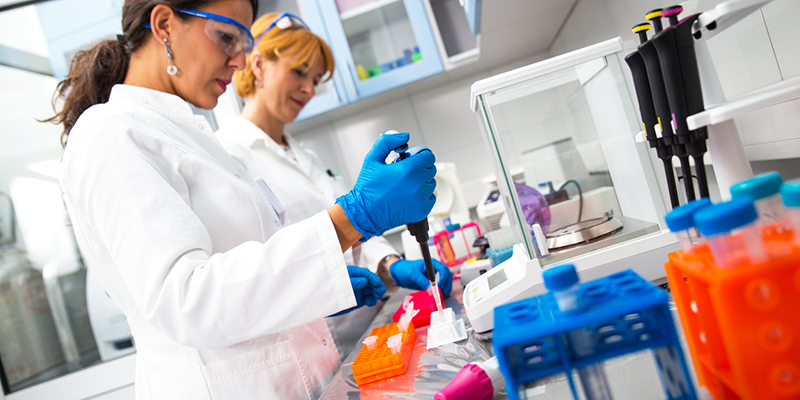The top 5 AI trends in UK startups
| Beauhurst
Category: Uncategorized
It’s currently London Technology Week, and with that in mind we’ve taken a look at one of the most interesting applications of technology on the market: artificial intelligence. From the country’s youngest AI startups to companies like Google, this sector has captured the corporate imagination.
But where is AI going to be used? How advanced is the technology already? Below, we’ve identified five key trends in the sector to explore how AI is likely to affect our lives in the coming years.
1. Data analysis

More interesting than it sounds, the broad heading of ‘data analysis’ encompasses everything from fintech to recruitment. At least 60 UK startups can be categorised as using AI for analytic purposes: Sonr, which has raised the most in the sector (£6.99m), has developed software for journalists that uses AI to search across social networks, monitoring various accounts and keywords to deliver a curated feed of relevant news.
Acuity Trading, which works with Dow Jones, works in a similar way with news relevant to stock markets, as does Almax Analytics. Alpha-I has developed an AI-driven hedge fund. Indeed, a large proportion of these analytics companies are finance-based, and operate by analysing market news or fluctuations to assist investors.
Meanwhile, companies like Beamery, BraveNewTalent, Geek Talent, GamePlan Learning and numerous others use AI to power intelligent recruitment, facilitating simpler communication and better matching (often via CV analysis) between jobseekers and hirers. Employee data analysis is also undertaken by Qlearsite and StatusToday. The latter’s technology monitors abnormal employee activity to prevent information leaks.
2. Advertising and retail

This trend is the most likely to affect daily life in the near future – and, indeed, is starting to do so already. Netflix or Amazon’s tailored recommendations for programmes and products are just the start of what AI can do here: Twizoo, Thread, and KOMPAS use metrics like social media data and user interests to recommend restaurants, clothes, and local attractions respectively.
Similarly, advertising firms make use of audience data to encourage purchases, and assess what kind of advertising particular individuals are susceptible to: Suzu Technologies, Seldon, Proximus, and Realeyes (which analyses facial expressions to detect responses to adverts) all work in this space.
Finally, on the rise is the use of ‘visual search’, whereby the objects in pictures or scans are identified and then matched to similar images of objects online (as we discussed briefly in our blog on Cortexica). This has immediate implications for retail across various fields, as companies like Visii andMobile Acuity are clearly discovering.
3. Cybersecurity

With fewer participants than the previous two trends, but having nonetheless made a significant impact on the UK startup scene, cybersecurity is one of the most interesting fields currently in development.
Darktrace immediately stands out from the crowd: it has raised £76.4m (almost £70m more than its nearest rival in the sector, Cocoon). Darktrace, founded just four years ago, has developed security software that identifies behavioural anomalies likely to signal security threats. As of July 2016, it was worth £187m.
Cocoon, meanwhile, has developed a home security device that senses activity in the home, and which uses machine learning to minimise false alarms. Interesting too is Crowd Vision, whose software seeks to monitor crowded places and automatically generate insights on, for instance, how many individuals are present and how they are likely to move.
Returning to the digtal world, several AI companies aim to add a layer of security to personal devices. Aim Brain develops biometric software that recognises patterns in a user’s entry of passcodes, and so can block unauthorised users even if they enter the correct code. Eyn uses facial recognition technology for similar ends, and VChain Technology uses blockchain software alongside biometrics to verify digital identity.
*Disclaimer: Aim Brain shares significant shareholders with Beauhurst.
4. Medtech

The AI used within medicine ranges from appointment booking software to predictive diagnostics. It’s noteworthy that, of the relatively few high-growth companies operating in this space, most are still at their earliest stage. Babylon stands out as having raised more than twenty times the investment of its closest rival, Your.MD, which develops a health assistant self-diagnosis app.
Some of the most specialised AI companies operate in medtech: ThinkSono, for instance, develops software which uses ultrasound technology and machine learning to diagnose deep vein thrombosis. But it’s also the home of the everyday: BioBeats produces a range of software products to help individuals and employees manage stress and productivity, through analysing key biometrics like heart rate. Torafugu Tech also uses wearables to monitor health for the insurance industry.
Other medtech startups likely to see uptake in routine diagnostics work include Klarismo, whose software constructs visualisations of users’ bodies through data from MRI scans, and Avalon AI, which uses MRI scans to detect the early stages of dementia.
5. Saving the world

This category is somewhat harder to define, but it’s every bit as serious as the first four. Our assessment indicates that several AI-based UK startups are looking beyond the everyday and into the future of the population, and even the planet. Healx, for instance, develops research software that’s designed to help find potential treatments for rare diseases, by matching them to existing compounds. And Global Surface Intelligence provides data on the amount of carbon stored in trees and vegetation across the world, which is already being used by bodies such as FiniteCarbon – a US firm which provides carbon offsetting for businesses across the country.
GiveVision and OxSight are among other high-growth companies with an eye on solutions for the future: both develop software for smart glasses for the visually-impaired. The glasses can read text, identify faces, give directions, navigate physical obstacles, etc.
Also designed for the vulnerable is Emteq, which creates wearables that use AI to provide VR experiences which correspond to users’ facial expressions. This has interesting implications for treating autistic spectrum disorders, as well as facial palsy, strokes, Parkinson’s, paralysis, and various mental health problems. Kraydel, meanwhile, monitors elderly individuals who live alone, and alerts a carer whenever needs are not being met or certain changes in condition occur. Prosper(previously Global English) uses virtual reality to teach children English through games.
Other startups in this rather eclectic sector include Desktop Genetics, which is developing a DNA search engine that allows DNA to be constructed, exchanged, and managed; FiveAI, which creates AI software to be used by self-driving cars; BenevolentAI (a possible candidate for both the first and third sections above), which uses data analytics to speed up scientific research and discover, and Spara which, along with several other companies, is developing software to minimise the energy used by homes and offices.
In short, it appears there’s no end of problems to which young AI startups are beginning to offer solutions. Indeed, there are many more growing companies that could have been mentioned: this has been only a foray into the hundreds of UK-based artificial intelligence firms eager to take on new challenges.
Discover every AI startup. Try Beauhurst.
Discover the UK's most innovative companies.
Get access to unrivalled data on all the businesses you need to know about, so you can approach the right leads, at the right time.
Book a 40 minute demo to see all the key features of the Beauhurst platform, plus the depth and breadth of data available.
An associate will work with you to build a sophisticated search, returning a dynamic list of organisations matching your ideal client.